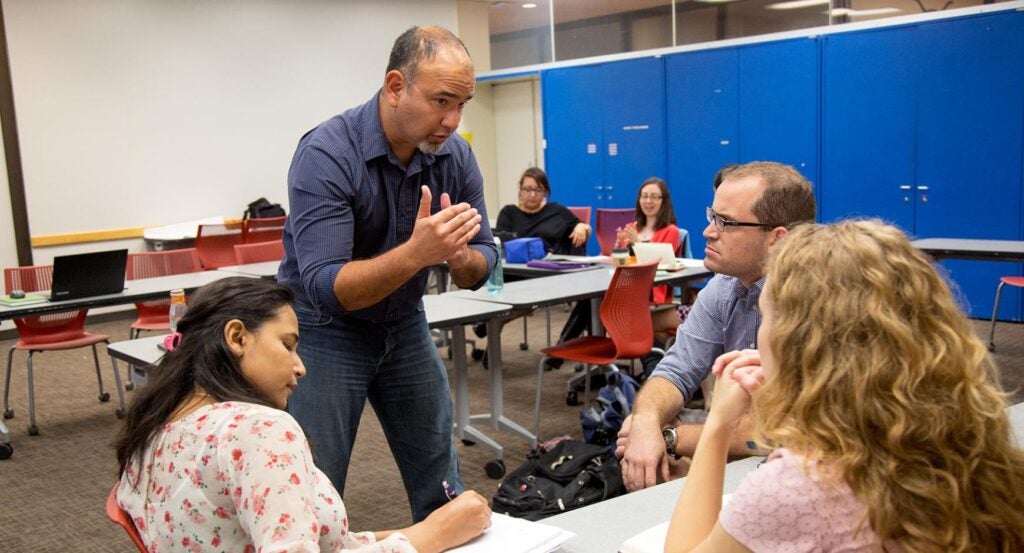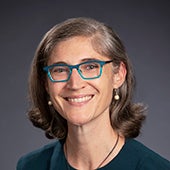Education Policy and Planning Program
Department of Educational Leadership and Policy

The Educational Policy and Planning (EPP) Program, ranked 9th by U.S. News & World Report, prepares the next generation of scholars, researchers, and analysts who will significantly and positively change public education. Our programs prepare students to be anti-racist education policy scholars and analysts, with a critical focus on issues of equity.
Our master’s program (M.Ed.), designed for working professionals by offering late afternoon and evening courses, trains students in education policy analysis. Students gain a theoretical foundation in policy implementation, politics, school law, poverty and educational policy, and critical policy analysis. Students gain a theoretical foundation in educational policy implementation and policy analysis, both traditional and critical approaches, as well as politics, law, and poverty in educational systems. Our program prepares students for careers as policy analysts, researchers in the public and private sectors, and for entry into a doctoral program in educational policy.
The doctoral program (Ph.D.) prepares future faculty members, policy analysts, and researchers to be thoughtful scholars with a critical focus on issues of equity. Students receive rigorous training in education politics, policy implementation, organizations, race and ethnicity, gender, poverty, social and cultural contexts of education, and the economics of education. This is a full-time program of graduate study; we do not have the capacity to accept part-time students.
Our cohort model provides built-in peer support as students move through the program, while also providing opportunities for inter-generational learning and research collaborations with faculty. In addition, students work closely with faculty mentors to develop a research focus, culminating in the dissertation.
Our faculty members are nationally recognized experts in high-stakes testing, market-based reforms, equity-minded reforms, issues of linguistic and cultural diversity, and school improvement.
Both programs employ a cohort model and start in the fall semester.
The GRE is not required for those applying for admission to the Education Policy and Planning program. Please note that some university-wide fellowship programs may consider GRE scores. Applicants who want to be eligible for all possible fellowships and scholarships should take the GRE.
Faculty

Researches how early childhood stakeholders respond to and conceptualize policies affecting the the complex educational, cultural, and individual goals and aspirations of teachers, children, and their families.

Teaches topics in civil rights and the intersection of law and policy in education; served as assistant secretary of education for Civil Rights during the Clinton administration.

Examines collaborative approaches involving community organizations and stakeholders that improve academic achievement and reduce opportunity gaps for students. Also studies chronic absenteeism, the role of high school athletics in school settings, a...

Focuses on urban school and district leadership, inclusive practices for students with disabilities, and school improvement with an emphasis on addressing inequities in classrooms, schools, and communities.
Accepting new students

Examines the effects of state and federal policies on college access and completion outcomes for low-income and underrepresented populations including immigrant and English Learner students.

Develops school leaders with the knowledge, skill, and disposition to foster collaborative instructional systems to produce high levels of adult engagement in their unique school environments to assure every student learns well and thrives, with a fo...

Examines principals and school-community engagement/community development and issues of educational equity and opportunity.

Focuses on the politics and implementation of educational policy with an emphasis on school reform


Focuses on identifying factors that hinder or promote the success of children and families from vulnerable and underserved populations.

I study student success for children experiencing poverty. I analyze how school leadership and state policy facilitate student success across the education pipeline.

Specializes in urban education from a sociological and multicultural perspective, with a focus on minority youth in schools, particularly at the K-12 level.

Uses lenses from organizational sociology to study how district leaders, principals, coaches, and teachers implement policy

Ph.D. Program Co-coordinator
Sarah Woulfin

M.Ed. Program Co-coordinator
Christopher Brown

Ph.D. and M.Ed. Co-coordinator
Sofia Malik

